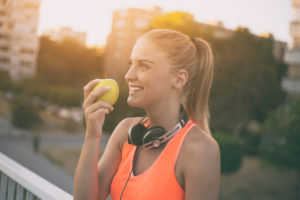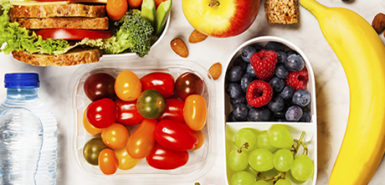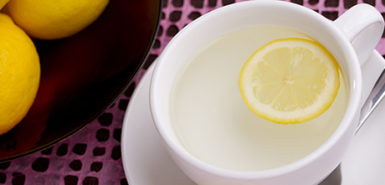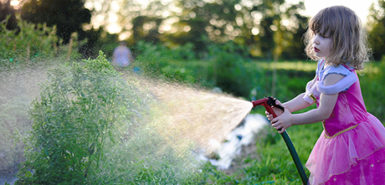
Ever see those Snickers commercials where the exhausted backyard football player turns into Betty White, complaining about a general lack of vigor?
Betty eats a Snickers and, voila, she’s got enough energy to get back in the game.
It’s a hilarious commercial and it’s great advertisement for a candy bar, but it’s not necessarily a great representation of nutrition and health when it comes to physical activity.
If you want to perform your best as an athlete, your decisions about nutrition should not be made in the thick of competition or practice. You need to eat healthy beforehand, so you don’t get to the point where you’re sluggish.
You should also consider avoiding food in the hour or so before competition or practice, because digestion uses energy that you instead want to use to win. Eating too soon before an activity can also leave food in your stomach, making you feel full, bloated, cramped and sick.
Water is a different story.
Drink at least 3 to 6 cups throughout the day and be sure to drink some just before practices and games. You should drink ample water during the activity and plenty afterward for replacement.
Sports drinks are unnecessary for most student athletes, as those drinks are made for athletes who have been exercising and sweating heavily for 90 minutes or more continuously.
Everyone is different when it comes to nutrition, so you need to pay attention to your body and your diet to see what works best for you.
Avoid high-fat and high-sugar foods because they can take longer to digest and they don’t provide long-lasting energy. In general, they simply leave you feeling uncomfortable.
A smart approach: Experiment with the timing and size of your meals on practice days, so that you’re better prepared for game day.
Some sensible meal suggestions to get you started before an activity:
- Half a bagel with 1 to 2 tablespoons of low-fat peanut butter
- One medium banana and 10 saltine crackers
- Low-fat yogurt and a fruit cup in water or light syrup
- Low-fiber fruit with non-starchy vegetables such as bananas, plums, melons, cherries, carrots, with whole grain dry cereal
- Two cubes of light Laughing Cow cheese and 1 serving of whole grain crackers
After games and practices, it is important to have a balanced meal or a snack to re-fuel. Refueling, however, does not mean eating beyond your body’s needs.
Most student athletes only need an additional 100 to 200 calories per day.
 /a>
/a>
 /a>
/a>
 /a>
/a>
Great article.. didn’t know about sports drinks not really needed unless 90 minutes or more of exercise! Thanks!!!